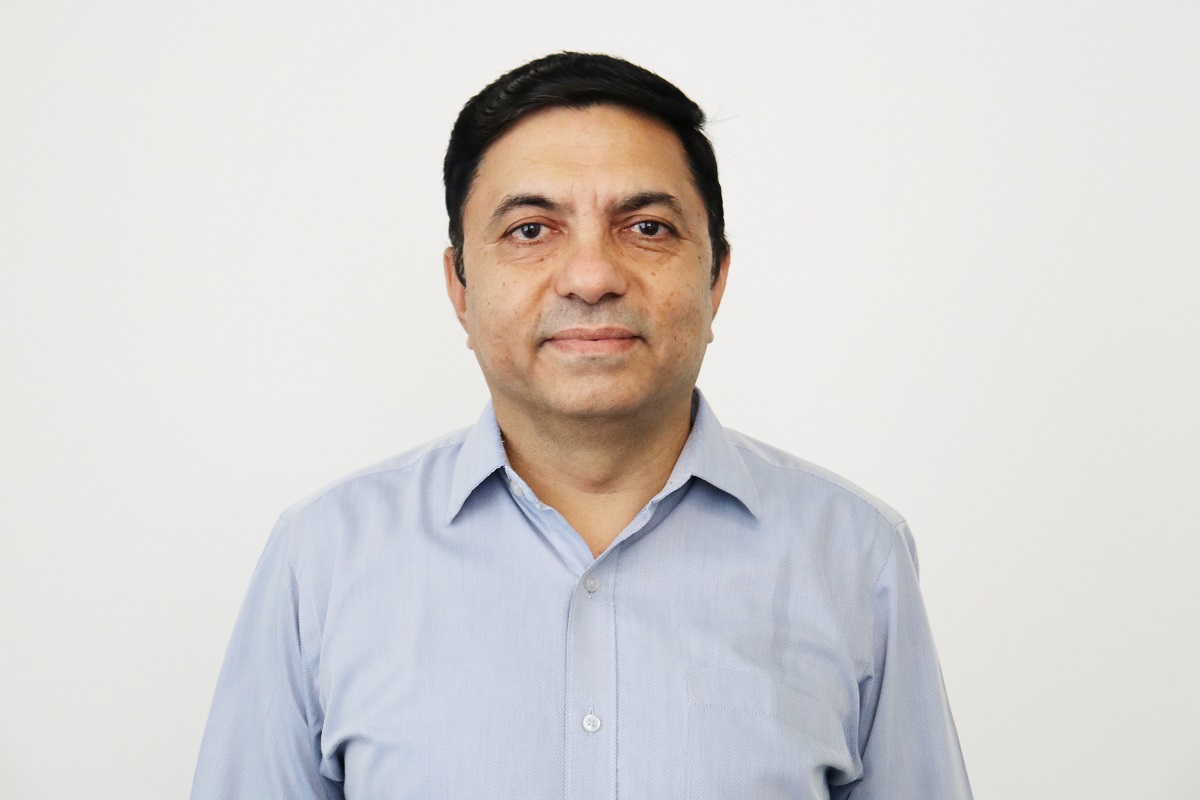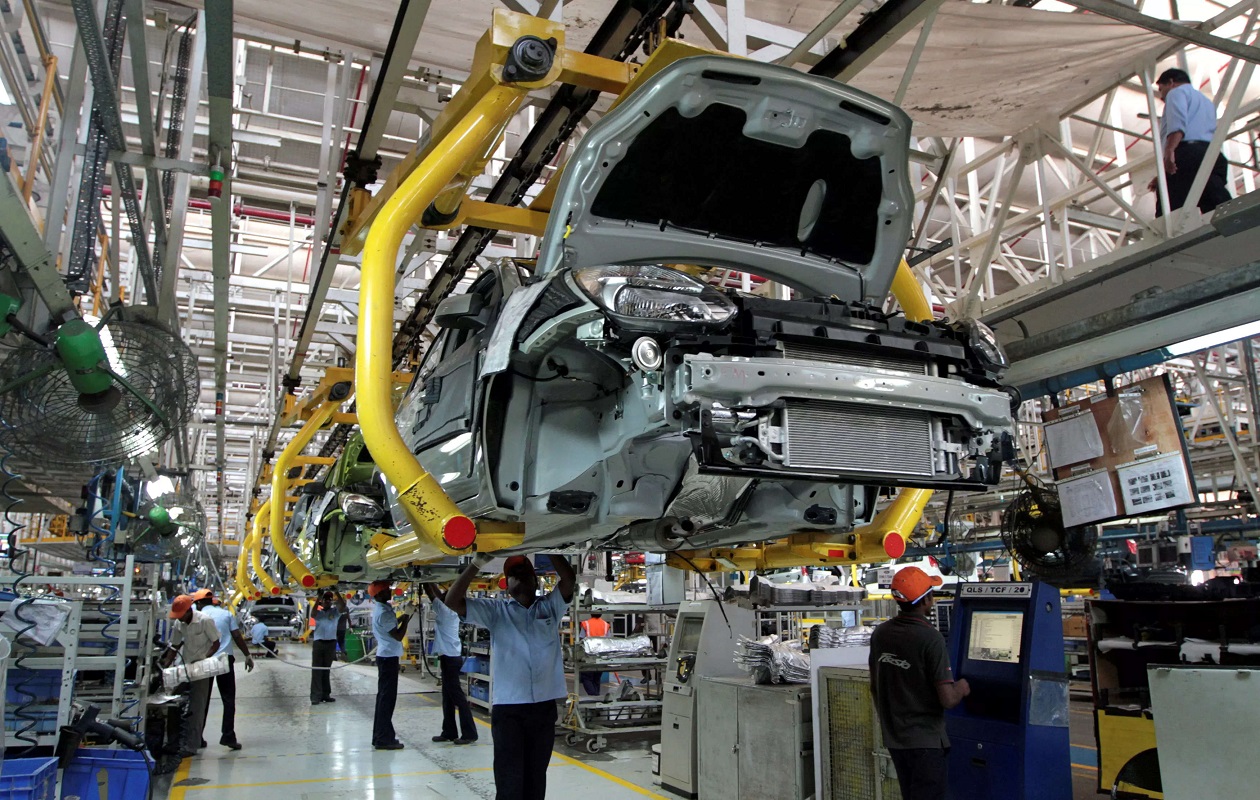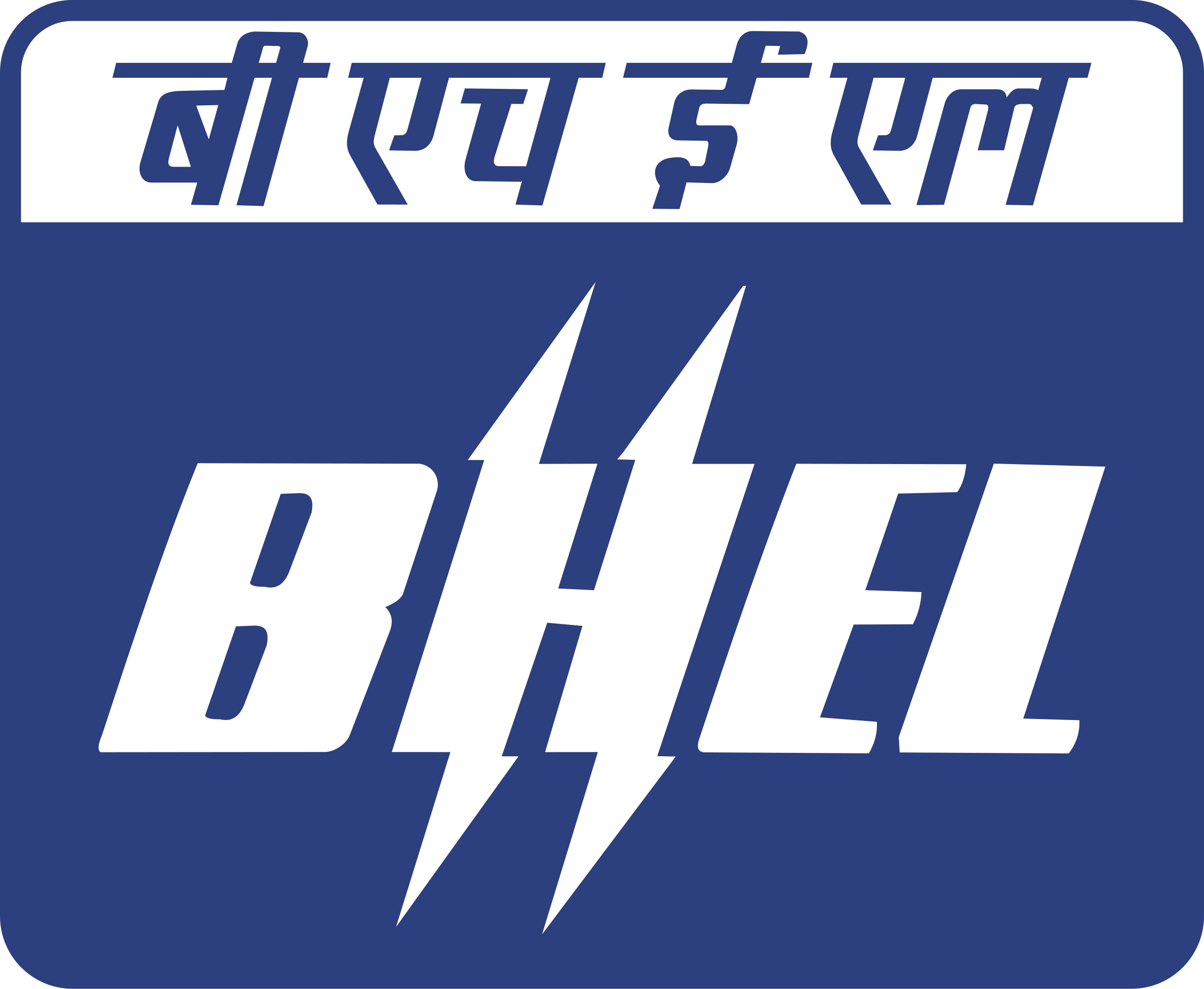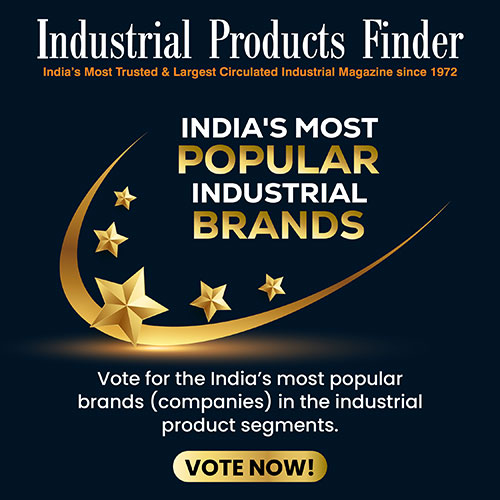Schedule a Call Back
Process Equipment Industry : Profitable Prospects Ahead
 Technical Articles
Technical Articles- Aug 04,11
The growth in the chemical, food, pharmaceutical and power sectors in India is bound to put a good spin into the process equipment industry, reports Huned Contractor

Given an average GDP growth of 8 per cent, the government's emphasis on infrastructure development, the rise in disposal income among India's young professionals and the impressive performance of the pharmaceutical sector, the positive trickle-down effect of all this will be felt by the chemical and food processing equipment industry.
To add to the equation are emerging technologies that will take the sector further. Biofuels, for example. This is certainly the current sentiment of the industry as can be gleaned from what Mr Pramod Chaudhari, Chairman, Praj Industries Ltd, had to say while addressing his company's shareholders: "Emerging economies like India stand to gain from such developments, not just because these innovations can take place in such countries, but also because they present a vast opportunity for installation of such assets."

Praj Industries is a global Indian company that offers innovative solutions to add significant value to bio-ethanol facilities, brewery plants, water and wastewater treatment systems as well as process engineering, plant and equipment for customers worldwide. With over 450 references across five continents, Praj is a leading ethanol technology and plant supplier with a strong focus on second-generation bioethanol process development.
What Chaudhari says is echoed by many in the processing equipment industry. "The industry's growth curve is in an upward spiral as can be seen from the increasing number of orders received for processing equipment in 2010-11," says Mr Farzan Pardiwala, Project Engineer, Diamond Fabrications, a Pune-based unit that designs and manufactures process equipments required for chemical, dyestuff, paints, sugar, food, pharmaceuticals, environment protection and various other process industries.
To be able to judge the performance of the process equipment industry, it is important to first take a look at how the chemical, food, pharmaceutical, power and other sectors are slated to perform in the near future.
India's fast-growing chemical industry was ranked 12th in the world in 2007 and is the third-largest in Asia. It has the potential to grow to USD 100 billion by 2010 according to KPMG's analysis based on a survey of the industry. The industry has evolved from being a basic chemical producer to include specialty and fine chemical products. Production by value is split between basic chemicals (57 per cent) specialty and fine chemicals (26 per cent) and knowledge chemicals (17 per cent). India is also emerging as a world leader in chemicals research.

The Indian pharmaceutical market is the fastest growing market in the world. It is eighth in terms of volume and 13th in terms of value. The agro sector is the fourth largest after the USA, Japan and China. It is second largest producer of pesticides in Asia. The Indian food processing industry is one of the largest in the world in terms of production, consumption, export and growth prospects. Emerging new markets and technologies have fuelled the production of ready-to-eat food, beverages, processed and frozen fruit and vegetable products, marine and meat products.
It also includes the establishment of post-harvest infrastructure for processing of various food items like cold storage facilities, food parks, packaging centres, value-added centres, irradiation facilities and modernised abattoirs. The Indian food market is estimated at over USD 182 billion and accounts for about two-thirds of the total Indian retail market.
According to consultancy firm McKinsey & Co, the retail food sector in India is likely to grow from around USD 70 billion in 2008 to USD 150 billion by 2025, accounting for a large chunk of the world food industry, which would grow to USD 400 billion from USD 175 billion by 2025.
Similarly buoyant is the story of the power sector with several emerging opportunities. For the 11th Five Year Plan, the total estimated investment opportunity is Rs 9,08,334 crore, the break-up of which the generation sector (including non-conventional energy resources) and the transmission and distribution sector. The Government of India's vision of 'Power For All' by 2012 will lead to an allocation of Rs 28,000 crore for building rural electrification infrastructure of 1,50,000 villages and 2,35,00,000 below poverty line households under the Rajiv Gandhi Grameen Vidyutikaran Yojna (RGGVY).

"The process equipment industry is all set to grow also because of the economics of scale. For instance, labour is cheap, the various state industrial corporations have been providing the large amount of land required for this sector and the adaptation of new technology has been swift," says Pardiwala. Moreover, the sector is also witnessing the coming together of Indian and foreign companies to benefit from technology and resource sharing.
For instance, in January this year, Praj Industries signed an agreement with Qteros, Inc, the developer of a unique and highly efficient consolidated bio-processing (CBP) platform for the lowest cost production of cellulosic ethanol to accelerate commercialisation efforts for industrial-scale cellulosic ethanol production.
The agreement leverages both Qteros' broadly patent-protected and highly flexible CBP platform with Praj's research capabilities and its technology, process design, engineering and construction expertise to deliver fully integrated engineering design packages for the lowest cost production of ethanol from a broad variety of non-food based feedstocks.

"Initially, the companies will focus their efforts on developing PDPs for feedstocks that include sugarcane, corn and wheat residuals with the goal of achieving commercial-readiness by the end of 2012. The companies believe that their initial commercial plans will focus on Praj's existing broad base of ethanol customers seeking to add co-located cellulosic ethanol facilities to their existing ethanol infrastructure," said Chaudhari.
Cementing the growth story further is the announcement by Alfa Laval, a leading global provider of specialised products and engineering solutions based on its key technologies of heat transfer, separation and fluid handling, which has received an order for providing a complete solution to a vegetable oil plant in India, valued at Rs 46 crore. The delivery is scheduled for 2012. The order includes a variety of Alfa Laval products such as separators, mixers and heat exchangers and will be used for refining different types of crude oils - soya bean, for example - into high quality oils. "We continue to see good development in India," comments Mr Lars Renstr?m, President and CEO of the Alfa Laval Group, adding,
"The latest order confirms the positive trend in the country's food and vegetable oil industry." The Indian edible oil industry is expected to grow 6 per cent annually, and reach 20 million tonnes of consumption by 2015.
Given the positive scenario, one significant development that has been taking place of late is the entry of the multinationals in the process equipment industry in India. Attracted by the cost-effectiveness factor, countries like Germany, Italy, Japan, Australia and Denmark are now setting up their plants here to manufacture separators, heat exchangers, reactors, and so on.
"There has been a marked increase in the number of MNCs coming to India with designs and technology sourced from their parent companies. Even if the cost of logistics in transporting the equipment to their clients in foreign countries can be quite high, it does make sense because of the low cost of labour, power, ancillary equipment and land," says Pardiwala.
However, industry analysts agree that the growth rate for this sector could have been much faster had it not been for the delay in overcoming some primary challenges. For example, the technologies available in India in the agro-food processing equipment sector are still in the learning curve when compared to the developed countries. Therefore there has been a net inflow of equipments from Europe, especially from Sweden, Denmark, Germany and Czechoslovakia.

"In India, the major thrust of research and development in the agri-food sector has been on the primary processing of food rather on developing equipments in this sector. However, there have been pioneering efforts put forward by the CFTRI, IARI, DRDL, Post-Harvest Technology Centre (PHTC, IIT Kharagpur) and DFRL. These laboratories have been fairly successful in developing innovative equipment in the agro-food processing sector. Most of the technologies available in the equipment sector which could be considered as globally competitive fall in the category of pre-harvest technologies," informs Mr Shekhar Gadgil of Sai Krupa Industries, a food processing unit near Pune. Meanwhile, one of the off-shoots of the developments taking place in the process equipment sector is the supporting boost to the packaging machinery segment. Packaging machines such as automatic form-filling and sealing machines, tetra pack aseptic packaging machines for sterilised filling and packing of liquids, testing instruments, and can making machinery offer considerable business opportunities.
Some of the major domestic equipment manufacturers supplying the market are Flex Engineering Ltd, ITW Signode India Ltd, Print Pack Machinery Ltd, Eagle Manufacturing Co, Larsen & Toubro, Acrofil India, Automatic Devices, Ultraflex Systems and Primo Pack, among others.
Commenting on the status of the industry, Mr K Ravi, Managing Director, Hassia Packaging, says: "There is a great future lying in store for those engaged in the manufacturing of packaging equipment in India. That is because of two primary reasons: one, the multinational consumer products' manufacturers are increasing their investments in emerging markets like India because of a growing demand for packaged food items and two, packaging solutions in our country are very focused on cost innovation so that the packaging cost does not add too much to the product cost. Also, even though countries like Germany and the USA may possess better technologies in this sector, India is perceived to offer good quality now comparable to the best of international standards."
Hassia Packaging specialises in automating the packaging of food and other products in pouches, jars and cans, catering to the needs of a diverse group of industries including dairy, malted food, health drinks, snack food, tea, coffee, sugar, salt, detergent, and agro-chemicals in India, the Middle East countries, Africa, South-East Asia, Australia, and New Zealand.
Given the fact that the Ministry of Food Processing Industries (MOFPI) has formulated a Vision 2015 action plan which includes trebling the size of the food processing industry, raising the level of processing of perishables from 6 per cent to 20 per cent, increasing value addition from 20 per cent to 35 per cent, and enhancing India's share in global food trade from 1.5 per cent to 3 per cent, another company that is gearing up for the great future is Pune-based Nichrome.
A pioneer of VFFS machines in India that has revolutionised the packing and distribution of milk by introducing pouch packing in dairies, Nichrome has over 5,000 installations for liquid, viscous and solid applications together in 40 countries globally.
"Looking at the future growth prospects, we are investing into a new R&D centre with an investment of Rs 5 crore. The facility is expected to be completed by March 2012. This will provide an integrated work place for product designing. The packaging industry is one of the most rapidly growing industries and needs value-added solutions for the customers," says Mr Harish Joshi, Managing Director, Nichrome. In short, the writing is on the wall for all the players to see, and respond.
New Revolutionary Green Film for Industrial Packaging
Eco-Corr? is a bio-based and bio-degradable film utilising Cortec's patented VpCI? technology. It is the first 100% biodegradable VCI film in the world, initiating a new era for 21st century packaging. This highly efficient product provides much better tensile strength, tear resistance and ultimate elongation than low density polyethylene (LDPE) films. It is certified under DIN CERTCO DIN EN 13432 (Europe) and Biodegradable Products Institute ASTM D6400 (USA), as well as heat and water stable and does not disintegrate or break apart while in use.
Eco-Corr provides contact, barrier and Vapour phase Corrosion Inhibitor (VpCI) protection for up to two years. It provides multi-metal corrosion inhibitor protection and is improved replacement for non-degradable and nitrite-based VCI films. Once exposed to soil or compost conditions, this product will disintegrate rapidly and completely within weeks, without contaminating the soil. It is nitrite and amine free. Eco-Corr fully biodegrades into carbon dioxide and water within a few weeks
Metal parts packaged in Eco-Corr receive continuous protection against salt, excessive humidity, condensation, moisture, aggressive industrial atmosphere and dissimilar metal corrosion. The Vapour phase Corrosion Inhibitors vapourise and then condense on all metal surfaces in the enclosed package. VpCI reaches every area of the package, protecting exposed parts as well as hard-to-reach interior surfaces against micro-corrosion. With this green alternative one would get complete protection during storage as well as domestic and overseas shipments.
Once put to use, Eco-Corr will remain effective with regard to mechanical strength until the film is placed in contact with material containing micro organisms, such as certain types of waste, soil, and compost. Under these conditions, 100% biodegradation into carbon dioxide and water will occur within a few weeks, with no residual contamination of the soil. Eco-Corr meets NACE TM0208-2008 and German TL-8135-002 standards for corrosion protection.
Cortec Corporation is a world leader in innovative, environmentally responsible VpCI and MCI? corrosion control technologies for Packaging, Metalworking, Construction, Electronics, Water Treatment, Oil and Gas, and other industries. The ISO 9001 and ISO 14001:2004 certified company manufactures over 400 products that are distributed worldwide. (Contact: Cliff Cracauer, Cortec Corporation, USA. Tel: + 651 429-1100, Ext. 181. Email: cliff@cortecvci.com)
Huge Investment Opportunities in Printed Circuit Boards Industry
The Indian electronic industry has already grown to USD 45 Bn (Rs 213,750 crore) and is growing at the rate of 25 to 27% year on year. This is expected to touch USD 189 Bn (Rs 900,000 crore) by 2016. However production in India is only at USD 25.6 Bn (Rs 121,760 crore), which is just 50% of the total demand and the rest is imported.
Printed Circuit Board (PCB) is part of this growth and is an important electronic hardware component used in each and every electronic product. No electronic product can be produced without PCBs. The world PCB market is pegged at USD 50.7 Bn (Rs 240, 825 crore) and is expected to grow to USD 62 Bn (Rs 294,500 crore) by 2016. Asia is the largest producer of PCBs led by China with 29.9% share in world market. The Indian PCB market size is USD 913 Mn (Rs 4,340 crore); however, domestic production is only at USD 372 Mn (Rs 1,770 crore). Out of' this export contributes USD 74 Mn (Rs 350 crore). Thus, there is a huge gap between demand and supply to the extent of USD 614 Mn (Rs 2,920 crore), which is currently met by imports.
The Indian PCB industry today is technologically at par with the international levels barring few specialised applications. Also over the years many industries have added capacities to become of international size and thus take advantage of economy of scales. As such as Indian PCB industry today is touching truly international in size and capabilities. To cater to huge demand supply gap and also take advantage of huge export market PCB Industry needs investments in India to the tune of (Rs 4,000 crore). The Indian Printed Circuit Association (IPCA) is the only representative body of the designers, manufacturers, assemblers, equipment, raw material, service providers and professionals to this industry. IPCA is celebrating its Silver Jubilee this year and is holding an international EXPO by the name IPCA EXPO-2011 from August 3-5, 2011, at KTPO in Whitefield, Bangalore. The exhibition will have wide participants from all over the world and will be visited by the large buyers of PCBs, professionals in this field, designers and manufacturers from the entire country. Special technical seminars will be held on 3rd and 4th August, 2011 covering topics of interest and the advancements in technology for all involved in this industry. A business meet is organised on 5th August, 2011 where large buyers will present their current as well as future market perspective. Well researched papers on Indian PCB industry and the opportunities will also be presented at the meet. IPCA launches its training course at "IPCA EXPO-2011" on 3rd August 2011; IPCA's training division will conduct exclusive three days training course on "Printed Circuit Board Designing" certified by IPCA during 3rd, 4th and 5th of August 2011. The IPCA EXPO-2011 will be one opportunity nobody can afford to miss.
(Indian Printed Circuit Association, Bangalore. Tel: 080-25505028, 25505029. Email: ipca@ipcaindia.org)
Related Products

Proteger Nitriflex Ninja Plus
Hallmark Safety Products offers a wide range of nitriflex ninja plus – 40114 under with brand proteger.
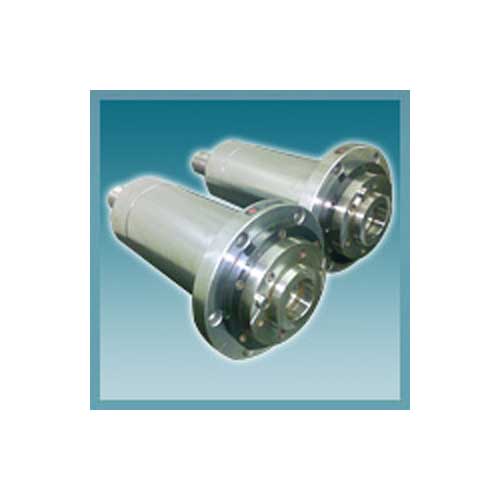
Belt Driven Turning Spindles
Capital Engineering Corporation offers a wide range of belt driven turning spindles.
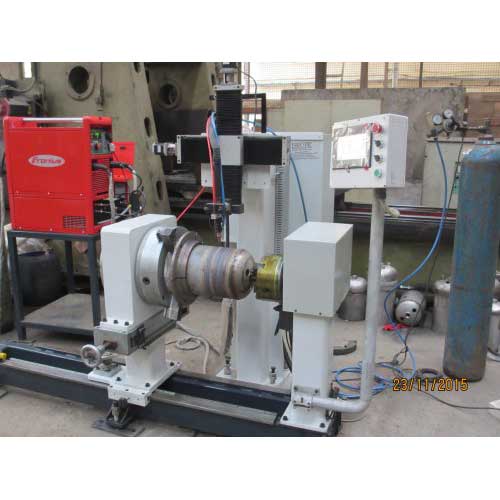
Welding Automation
Drupe Engineering Private Limited is offering a wide range of welding automation.





